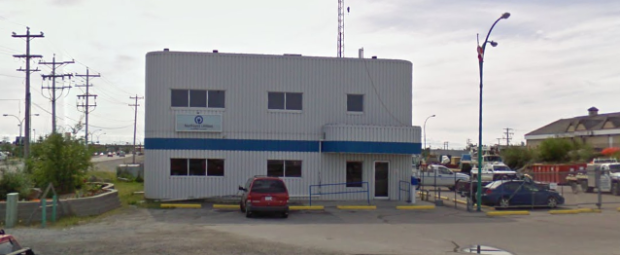Hay River, Northland Utilities head to court in latest step in power provider switch
Three years after it decided not to renew its electricity distribution franchise agreement with Northland Utilities, the town of Hay River is still working on getting out of the arrangement.
Northland had held the franchise to distribute electricity to Hay River homes and businesses for more than 30 years, before town councillors voted in 2016 to award the contract to the government-run Northwest Territories Power Corporation.
The two sides are scheduled to be in a Yellowknife courtroom Tuesday to argue about how much the town must pay for Northland's assets, including power poles, backup diesel generators, street lights, transformers, land, vehicles and buildings.
An ATCO subsidiary, Northland says its assets there are worth $40 million. An appraiser hired by the town estimated the value at $14 million.
The two sides turned to an arbitrator, John J. Marshall, for resolution. A year ago, Marshall sided with the town's $14 million estimate, but said it should also pay a 30 per cent premium on top of the value of the assets to account for the earnings the business generated.
Northland is now asking the Supreme Court of the N.W.T. to overturn Marshall's decision. A central issue in the case is the method to be used to determine the value of Northland's assets.
Northland is arguing the valuation should be based on "replacement value new less depreciation" — the cost of replacing the assets with new assets, minus how much the assets have depreciated over time.
The town says a more appropriate measure of the value is the book value of the assets — how much Northland paid for them at the time they were purchased, less depreciation.
In his arbitration ruling, Marshall said Northland's proposed method — replacement value new less depreciation — would result in a valuation approximately three times higher than book value.
"The result of this would be that the utility would, arguably, have a perpetual franchise," wrote Marshall.
The arbitrator noted that Northland has already recovered the value its assets have lost through depreciation, because it has been allowed to include that cost when determining what rates it must charge its customers in Hay River.
According to documents filed in the court case, the Public Utilities Board, which sets electricity rates, has said if the town pays more for the assets than their book value, they will not be allowed to recoup that additional cost from customers.
That led the town to say it will not proceed with taking over the franchise if the courts side with Northland and against the arbitrator.
Silent partner
The whole point of switching electricity distributors is to lower the cost of electricity in town.
The same day that Hay River Town Council selected the Northwest Territories Power Corporation to take over electricity distribution, the power corporation issued a news release saying after it takes over, people "can expect an overall decrease in Hay River's electricity rate of about 20 per cent."

But that was three years ago. Emanuel DaRosa, the person in charge of the corporation at the time, has left for a job in Jamaica. The person who took the job after he left, Jay Grewal, has also left, to head up Manitoba Hydro.
An official with the corporation said it would not talk about what role it is playing in helping Hay River end the franchise agreement with Northland, referring all questions to the town. The corporation was not immediately able to confirm that it is still committed to a 20 per cent reduction in rates. The town did not respond to CBC's requests for information.
While the dispute over the value of the assets has been winding its way through the courts, the two sides have been trying to reach agreement on other terms in the purchase and sale, said Doug Tenney, ATCO's vice-president of northern development.
"We've been working on that as well," he said. "My understanding is that the town has asked NTPC [Northwest Territories Power Corporation] to assist them in those discussions."
Tenney said the completing the the sale of the assets and termination of the franchise agreement is still some time away.
"There's still a public utilities board process, we will need approval to sell the assets. Then there will be a number of questions around what will the rates be for different types of service."
Tenney said it's difficult to estimate at this point how much longer the switch will take.
"My belief would be it's unlikely to happen in 2019," he said.

